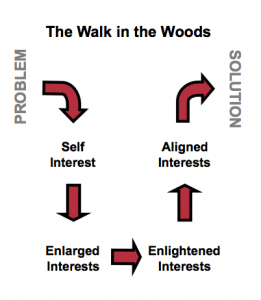To be at the front lines of public health leadership or health service delivery today is to be in the midst of frequent conflicts, disputes, and other situations that require negotiation. These conflicts include differences among: vocal constituents who have a stake in community health issues; clinicians about the appropriateness and quality of care; clinicians and managers over financial and administrative matters; providers and patients over medical procedures and service access; and on the policy level, between funders, providers and recipients over the access to and quality of care.
Many of these conflicts are an outgrowth of larger changes occurring in the health system: ambivalence about the role of the public sector in directing health expenditures and organization; tensions between prevention and treatment priorities; concerns about policies that modify reimbursement for services; disputes regarding reorganization that realigns interactions among health professionals; pressures resulting from social trends that are changing relationships between consumers/patients and the health system; along with the complexities of responding to unknown bioterrorist threats.
The research at the core of the Program for Health Care Negotiation and Conflict  Resolution has led to the development of the Walk in the Woods, a distinctive approach to interest-based negotiation, and the Meta-leadership framework and practice method. Course topics range from developing a better understanding of yourself as leader – from brain function to emotional intelligence – as well as the many facets of conflict and how constructively to resolve them.
Resolution has led to the development of the Walk in the Woods, a distinctive approach to interest-based negotiation, and the Meta-leadership framework and practice method. Course topics range from developing a better understanding of yourself as leader – from brain function to emotional intelligence – as well as the many facets of conflict and how constructively to resolve them.
It is not uncommon for HSPH graduates to find themselves in significant public health leadership positions. For students who foresee such responsibility on their career path, courses in this program provide a focus and framework to integrate the overall HSPH experience into a public health leadership trajectory. Students are encouraged to explore and develop their leadership passion and actions that will translate that commitment into progress on matters of public health importance.
These leadership, negotiation, and conflict resolution concepts, tools, and techniques are also incorporated into an executive education program for executive and clinical leaders in health care and public health.



